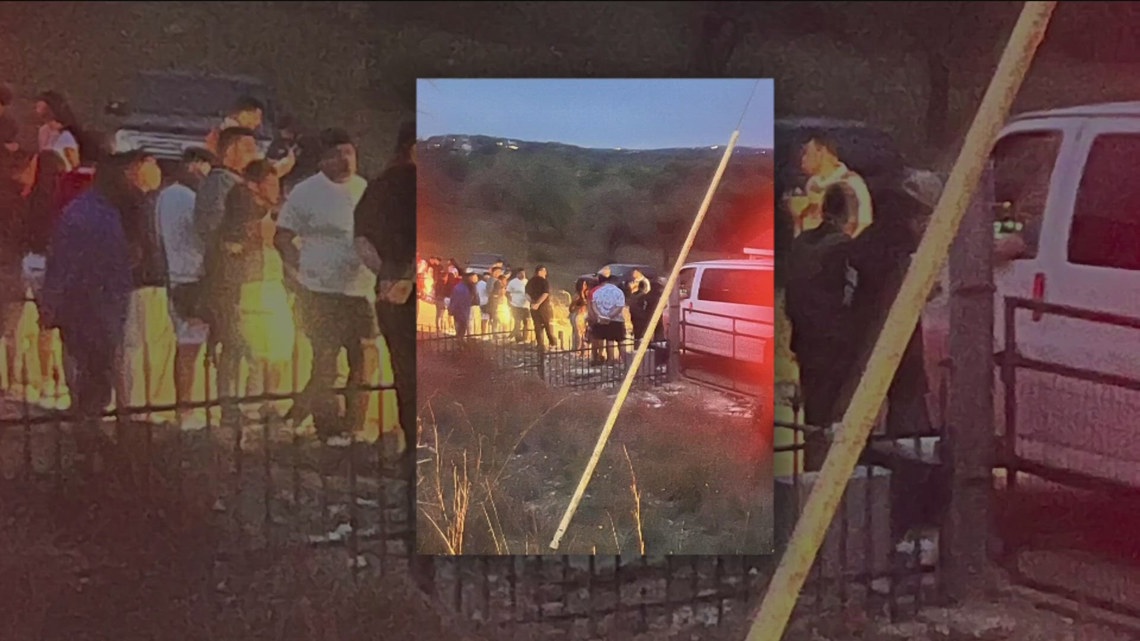
Nearly 50 people were taken into custody in Hays County, sparking fear and controversy.
HAYS COUNTY, Texas — For Joel McColl, it all started at around 6:30 a.m., when he left his home and noticed the road was blocked by a big white bus with multiple agents in different uniforms.
“Some had masks, some had full … looked like combat,” McColl said. “I saw a line of people with their hands zip-tied behind their backs.”
McColl lives outside of Austin, near the Bear Creek area. Over the past few days, that area is where the FBI said they discovered a “possible gathering” of suspected Tren de Aragua members.
Tren de Aragua is a gang that started in a Venezuelan prison. The Hays County Sheriff’s Office, FBI, ICE, Homeland Security, San Antonio police and Texas DPS said nearly 50 people, including minors, were taken into custody near a home in the area early Tuesday morning. Narcotics were also seized from the scene.
While it is still unclear which of the individuals – or how many – are suspected of being part of Tren de Aragua, ICE shared the following details of the 47 people taken into custody:
- 25 adult males
- Nine adult, single females
- Four female heads of households with nine children who are not U.S. citizens
“It was upsetting to think that something like that could be going on under our noses,” McColl said.
Raynell Martinez, who is part of the Austin Venezuelan Association, said with ICE conducting its enforcement operations in the Austin area, there is a climate of fear in the community.
“They don’t really know if they could be going to work, they don’t know if they can be deported, so it’s causing a lot of stress,” Martinez said. “We were coming here to escape from tyranny; now we need to go back to the same tyranny.”
In a time of uncertainty, this is Martinez’s hope.
“We cannot say all Venezuelans are part of this gang, so that is something that you need to separate,” Martinez said. “[There] should be a way to know who is the good and who is the bad.”
San Marcos-based activist group Mano Amiga responded to the arrests, citing concerns about the lack of transparency behind the operation and saying there is an “ongoing pattern of criminalizing immigrants and people of color in the name of security.”
